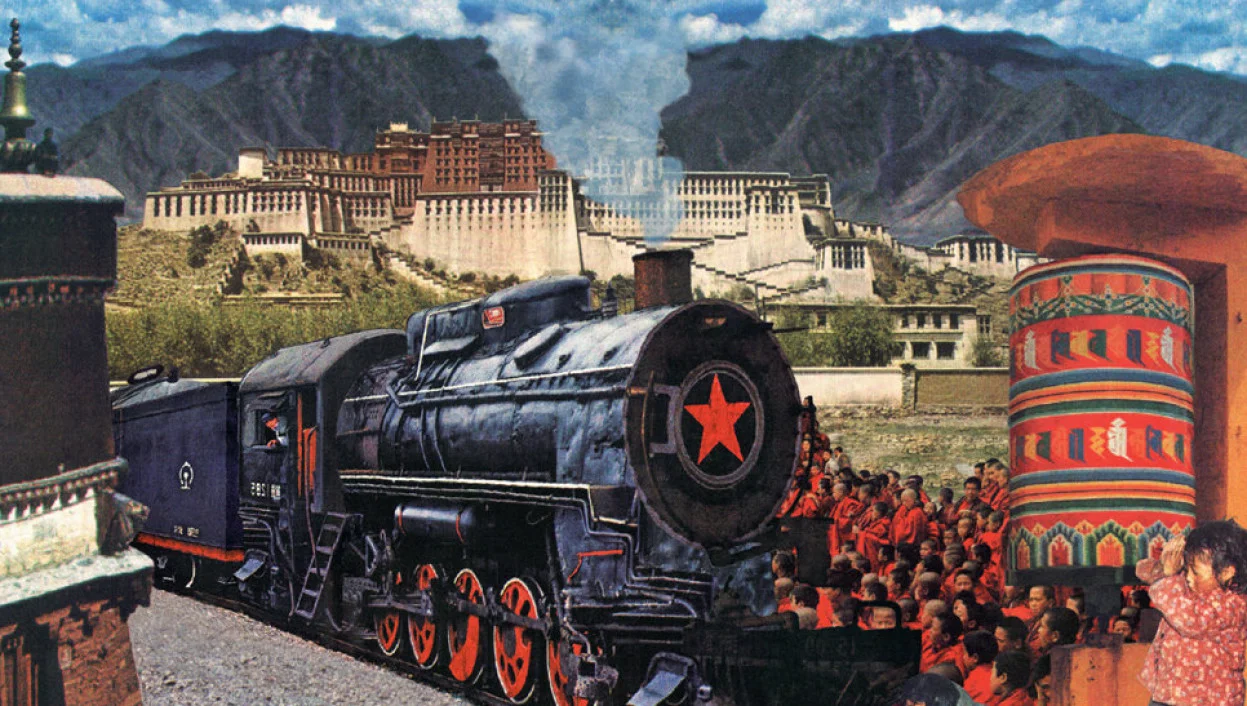
Last Train to Lhasa album cover
Qalam strives to explore the interpenetration of different cultures. To this end, we have decided to launch a series of playlists in which music mediates between different geographical and ideological spaces. Our first playlist is called ‘West to East: One Hundred Best Songs’. It will be updated several times a week, and its curation will focus on how Western pop culture has reflected the realities of the East, whether they are musical, geographical, religious, or political. (The terms ‘West’ and ‘East’ should be taken as broadly and arbitrarily as possible.)
In 1984, the first section of the Qinghai-Tibet Railway opened for passenger service, connecting the city of Xining with Lhasa, the center of the Tibet Autonomous Region. Ten years later, Toby Marks, who performs as Banco de Gaia, recorded a nearly twelve-minute composition called Last Train to Lhasa to protest the ongoing construction of the road. In fact, at the then ubiquitous raves and chill-outs where the song was often played, few people were able to discern the protest message (and Toby Marks was actively involved in the movement for Tibetan independence from China). The political message dissolved into hypnotic techno-ambience and general oriental affectation. The road between Xining and Lhasa was eventually completed, while the composition, if you don’t know the background, still retains its abstract expressiveness. You can play it in first-class carriages, no problem. The main melodic line is strangely reminiscent of Italian soundtracks of the 1970s.